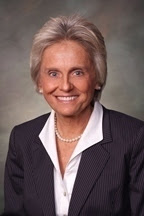An Interview with Catherine Strode
 State Representatives Joann Ginal (House District 52) and Lois Court (House District 6) are continuing their effort to give terminally ill patients in Colorado the choice to take a lethal dose of medication when they have six months or less to live. The two state representatives are pledging to bring back a ‘Death With Dignity’ bill during the 2016 legislative session. In an interview with Catherine Strode, Representative Joann Ginal, one of the two prime co-sponsors, says she believes the bill offers Coloradans a civil right to choose.
State Representatives Joann Ginal (House District 52) and Lois Court (House District 6) are continuing their effort to give terminally ill patients in Colorado the choice to take a lethal dose of medication when they have six months or less to live. The two state representatives are pledging to bring back a ‘Death With Dignity’ bill during the 2016 legislative session. In an interview with Catherine Strode, Representative Joann Ginal, one of the two prime co-sponsors, says she believes the bill offers Coloradans a civil right to choose.

Why are you trying for a second time to pass a ‘Death with Dignity’ bill?
“There have been so many people that have asked me to bring this bill back. Also, they’ve asked Representative Court to bring this bill back. It’s what my constituents have asked me for. It’s what people within the state of Colorado have called me about, have written to me about. Many places I go they say, ‘Thank you for bringing this bill forward.’ It’s something people want as a choice. I believe it is a civil right for a person to choose if: they are terminally ill, if they have six months to live, if they follow all the barriers we have put into place. We have a choice in what medications we take, if we want to take chemotherapy. If we’re still of sound mind and if we’re suffering greatly, that should be another choice. I truly believe it is something that the people who believe in this want to come back again.”
What were some of the barriers to the bill’s passage in the 2015 session?
“There were several concerns. There were concerns from the disabilities community, thinking they are disabled but they’re not terminally disabled and they may be taken advantage of. That is not going to happen because of the need for two physicians to be in agreement that this is a terminal illness. You can be in a wheelchair, and it’s a terminal illness, but you’re not going to die in six months. I think the other is religion. I respect peoples’ religious beliefs. There’s a lot of people who have their own religious beliefs why they wouldn’t want it for themselves but we have to think beyond that. We have to think of the choice someone else could make for themselves.”
Will there be changes in the bill?
“Yes. We’ve learned a lot from the first bill. That’s a discussion Representative Court, myself, representative from the different stakeholders’ groups like the disability community, hospice, palliative care, even the religious community, need to discuss. I think some of the needs and concerns of the stakeholders will change the bill somewhat. Hopefully, we can gain more understanding from the folks who opposed it. I want people to feel comfortable with the way the bill is drafted. It will be different. I think this first bill paved the way to people talking about end of life decisions. One thing this bill brought out is that palliative care is not understood by the general public. Palliative care is a very important end of life choice as well, as is hospice. This is just another one of the choices that one should be able to have. If one is suffering and you know you’re not going to get out of it but you’re still able to take medication on your own, without any help, then that choice should be there.”
Why are you so intent on passing this bill?
“My personal experience watching my father pass from lung cancer, my brother to a blood cancer. We were very close. One of the last things he said to me was, ‘I love you, Sis, and I’m proud of what you’re doing to help people out.’ I think, if he had this option would he use it? I don’t know. But I think he was one of the big inspirations for this ‘Death with Dignity’ bill. If it has to run again, I certainly will run it again as well.”
 Catherine Strode is Advocacy Denver’s Communications and Policy Specialist. Formerly Coordinator of the Health Care Advocacy Program, she holds a Masters degree in Public Administration with an emphasis in Health Care Policy. Catherine publishes Policy Perspective, featuring interviews with state policy makers on issues that affect the work and mission of Advocacy Denver.
Catherine Strode is Advocacy Denver’s Communications and Policy Specialist. Formerly Coordinator of the Health Care Advocacy Program, she holds a Masters degree in Public Administration with an emphasis in Health Care Policy. Catherine publishes Policy Perspective, featuring interviews with state policy makers on issues that affect the work and mission of Advocacy Denver.